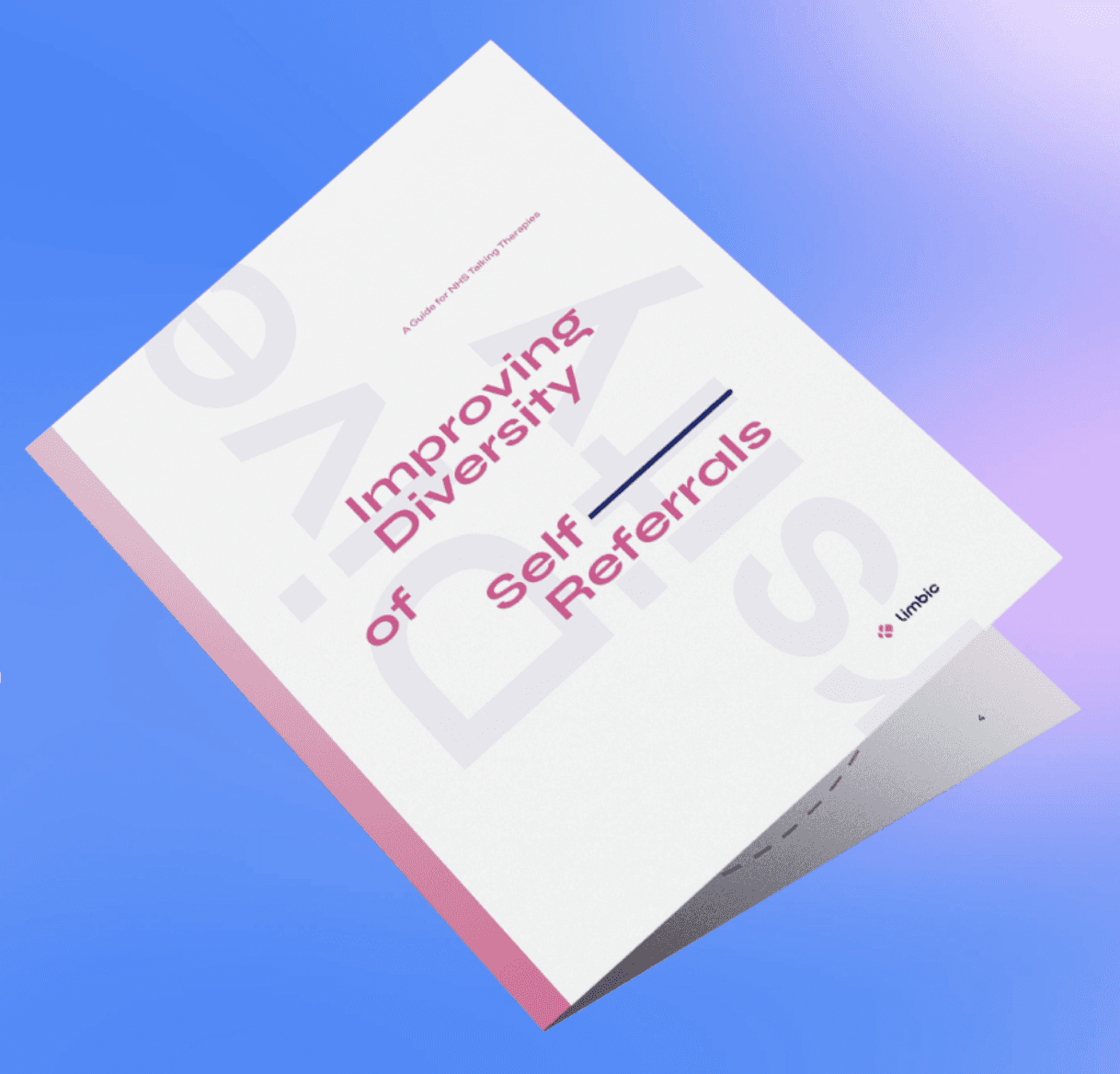

Key Takeaways
Background
The importance of supporting mental health is increasingly critical, but patient engagement in psychological talking therapy remains a challenge. To address this issue, we created Limbic Care, a Generative AI Care Companion designed to engage patients between therapy sessions. In this study, we hypothesised that this AI-enabled therapy support tool could improve patient engagement and clinical outcomes.
Methods
We evaluated the effectiveness Limbic Care, which was piloted with patients undergoing Cognitive Behavioural Therapy (CBT) treatment in the National Health Service (NHS) Talking Therapies services in the United Kingdom.
Our study specifically focused on patients diagnosed with depression and anxiety disorders. Among these patients, 35 individuals used the AI-enabled therapy tool for activities such as homework completion, and emotion monitoring before and after behavioural activation exercises. This group was compared to a matched control group of 3,926 patients who did not use the therapy support tool during treatment.
Results
Our findings show that the group using Limbic Care experienced lower dropout and do-not-attend rates, key indicators of treatment engagement. Additionally, there were notable improvements in indicators of treatment success, such as reliable improvement and reliable recovery. Patients who used the tool achieved significantly better treatment outcomes, showcased by higher rates of reliable improvement (94.3% vs. 69.8% in the control group) and reliable recovery (71.4% vs. 50.7% in the control group).
Reduction in 'do-not-attends' and drop-outs
30%
Increase in % of atteneded sessions
4 point
Increase in reliable recovery
41%
Therapy sessions required
40% fewer
Interestingly, the results also indicated that Limbic Care enabled faster recovery. We found that Limbic Care enables recovery rates that are at least as high as in the standard of care but with 40% fewer therapy sessions required.
Conclusions
These results suggest that the use of AI-enabled therapy support tools in talking therapy can lead to increased patient engagement, better treatment outcomes and reduced cost of service delivery. This study is a critical step illustrating the potential of AI tools to improve efficacy and efficiency of psychological talking therapies, generating substantial benefit to both patients and healthcare services.
PRODUCTS FOR SERVICES
Guide
Improving Diversity of Self-Referrals
This free guide has practical tips on how services like yours can connect with and engage their communities.
Limbic Access
Limbic Access becomes first in world to gain Class IIa UKCA medical device status
Our landmark achievement guranteeing the safety of our products.
Case Study
Greater Manchester Resilience Hub: Supporting Staff with AI Technology
Supporting our colleagues so they can support our communities.








